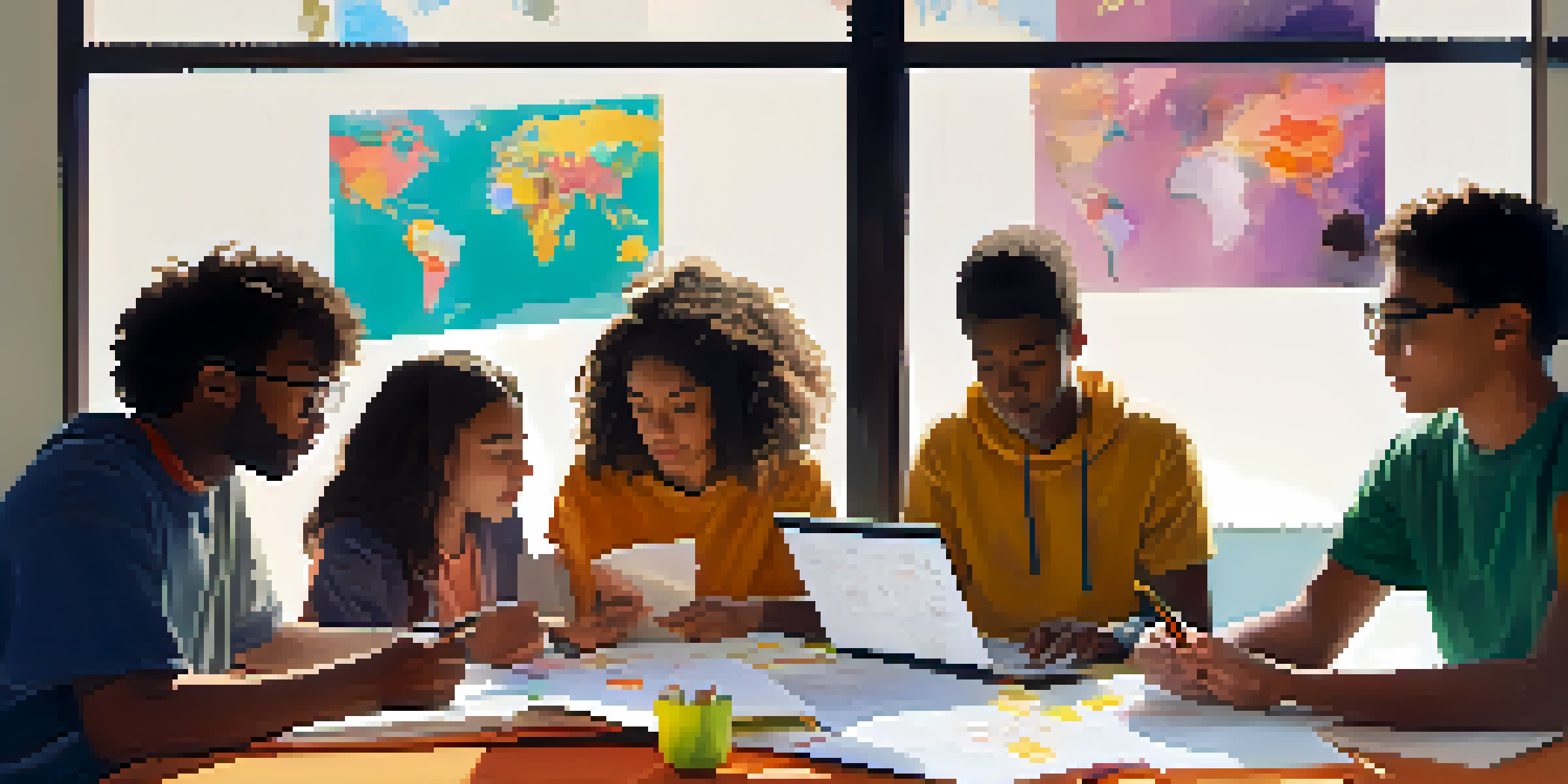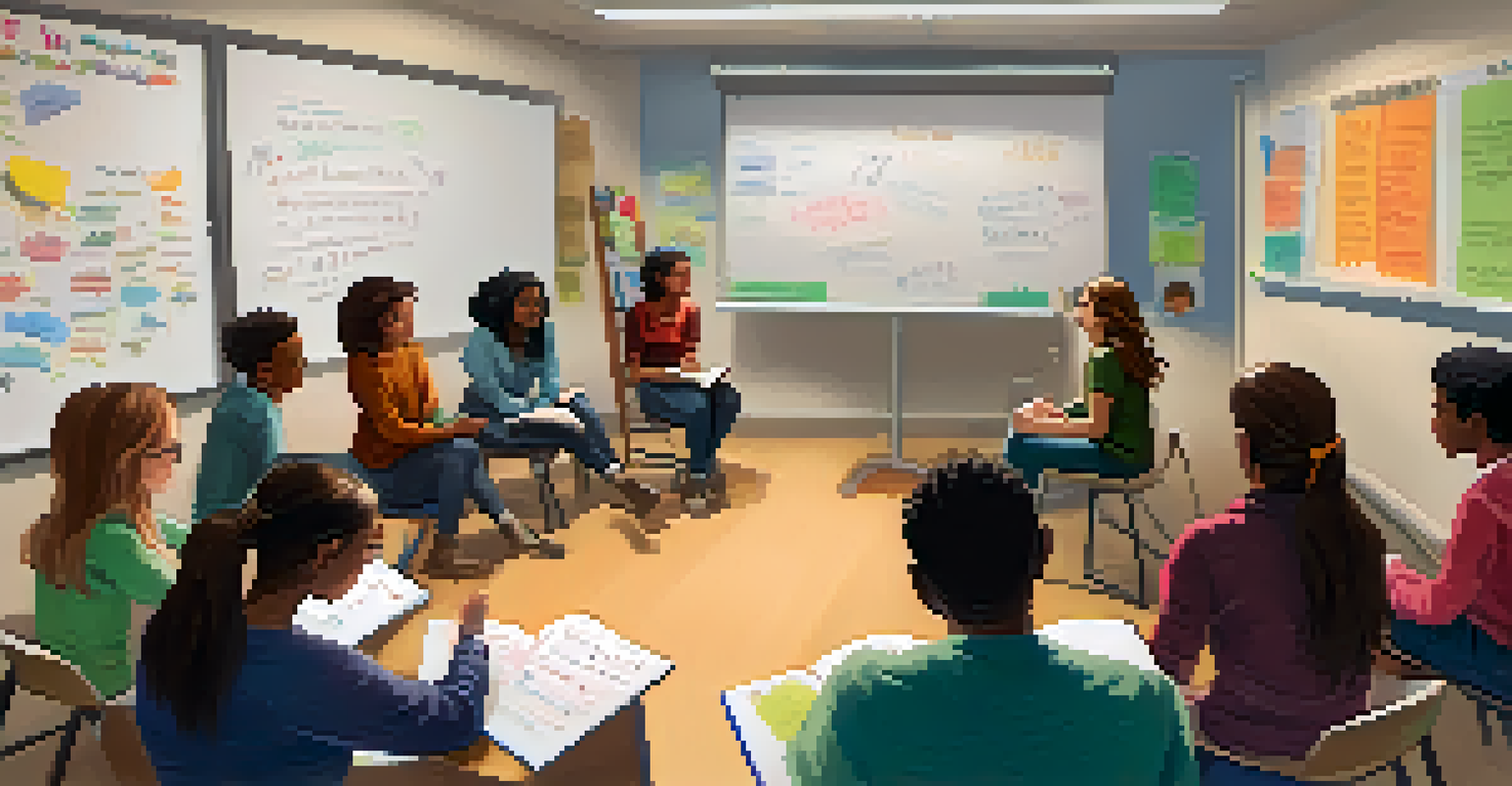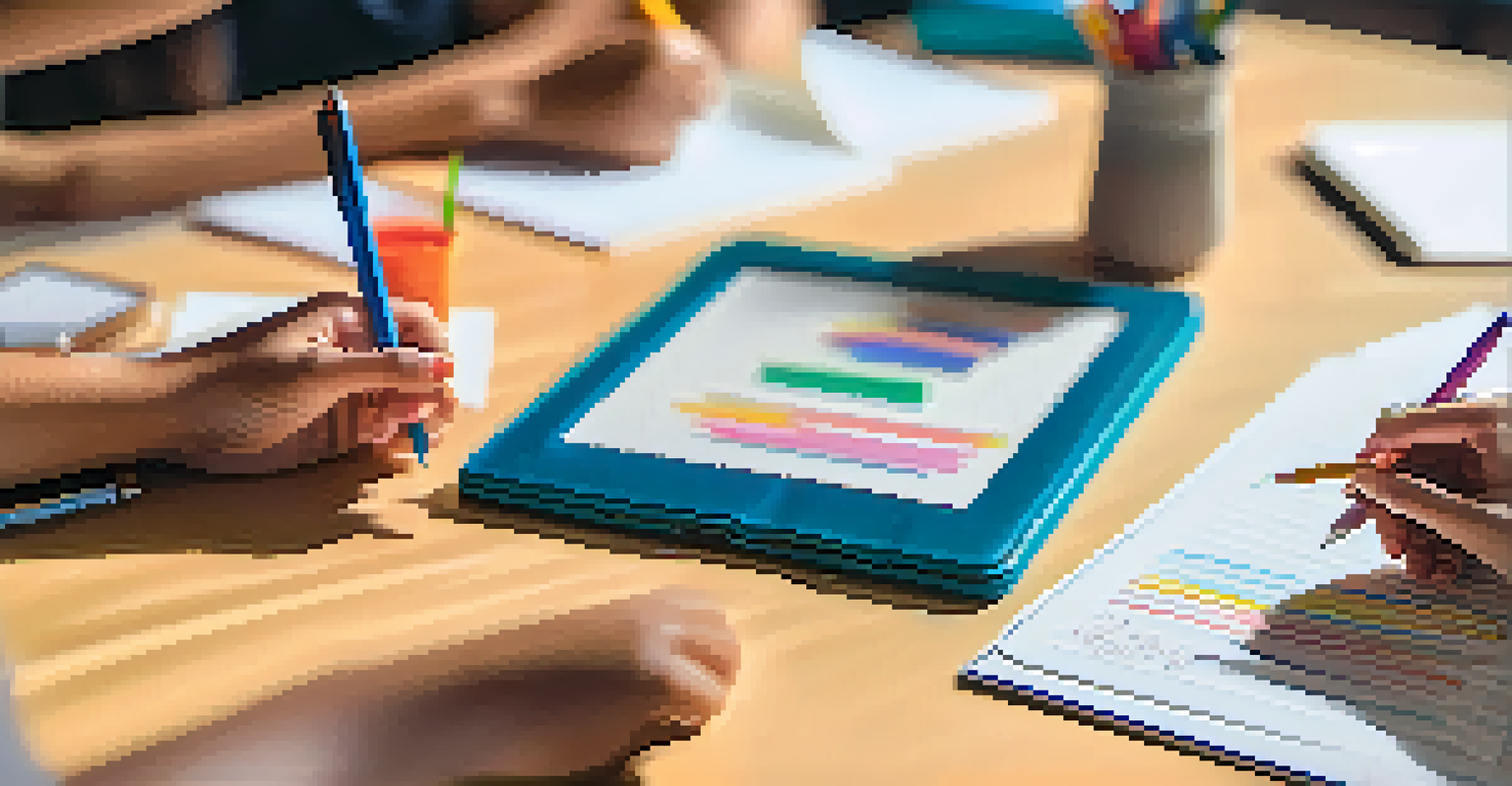The Role of Reflection in Collaborative Learning Processes

Understanding Collaborative Learning and Its Benefits
Collaborative learning is an educational approach where individuals work together to solve problems or complete tasks. This method encourages diverse perspectives, fostering creativity and deeper understanding. For example, when students collaborate on a project, they not only share ideas but also challenge each other's viewpoints, leading to richer discussions.
Alone we can do so little; together we can do so much.
One of the primary benefits of collaborative learning is the development of critical thinking skills. As learners engage with one another, they must analyze, evaluate, and synthesize information. This process not only helps them grasp complex concepts but also prepares them for real-world situations where teamwork is crucial.
Moreover, collaborative learning enhances communication skills, as participants must express their thoughts clearly and listen actively. This interaction builds a sense of community and belonging, making the learning experience more enjoyable and effective.
The Concept of Reflection in Learning
Reflection in learning involves thinking deeply about one's experiences, actions, and outcomes. It allows learners to assess what they’ve done, identify strengths and weaknesses, and consider how they can improve. Think of reflection as a mirror that helps students see their learning journey more clearly.

This process can take various forms, such as journaling, discussions, or self-assessments. Through reflection, individuals can articulate their thoughts and feelings about their collaborative experiences, leading to greater self-awareness. For instance, a student might reflect on how their contribution impacted the group's success and what they could do differently next time.
Collaborative Learning Boosts Skills
Engaging in collaborative learning enhances critical thinking, communication, and creativity among participants.
By incorporating regular reflection into the learning process, learners can develop a growth mindset, which is essential for lifelong learning. This mindset encourages individuals to view challenges as opportunities for improvement rather than as insurmountable obstacles.
How Reflection Enhances Collaborative Learning
Reflection is a powerful tool that enhances collaborative learning by encouraging participants to think critically about their interactions. When learners reflect on their group dynamics, they can identify what worked well and what didn’t. This insight fosters a culture of continuous improvement within the group.
The only way to do great work is to love what you do.
For example, after completing a project, a team might hold a reflection session to discuss their collaboration process. This allows team members to share their perspectives and provide constructive feedback, leading to a more cohesive and effective team in future projects. The act of reflecting together strengthens relationships and builds trust among members.
Furthermore, reflection helps to consolidate learning by allowing individuals to connect new information to prior knowledge. By thinking back on their experiences, learners can make sense of the material and retain it better, ultimately enhancing their overall educational experience.
Strategies for Effective Reflection in Groups
To maximize the benefits of reflection in collaborative learning, groups can implement structured reflection strategies. One approach is to use guided questions that prompt members to think critically about their contributions and experiences. For instance, questions like 'What was the most challenging part of our project?' can spark meaningful discussions.
Another effective strategy is to allocate specific time for reflection, either during or after collaborative activities. This ensures that reflection becomes a norm rather than an afterthought. For example, a group might take a few minutes at the end of each meeting to share insights and lessons learned.
Reflection Deepens Learning Experience
Reflection allows learners to assess their experiences, fostering self-awareness and a growth mindset.
Additionally, incorporating various reflection tools, such as digital platforms or physical journals, can cater to different learning styles. Visual learners may benefit from mind mapping their thoughts, while others might prefer writing in a journal. By offering diverse options, groups can encourage more meaningful reflection.
The Role of Feedback in Reflective Practices
Feedback plays a crucial role in effective reflection, as it provides external perspectives that enhance self-assessment. When team members share feedback, it offers insights that individuals might overlook when reflecting alone. This exchange of ideas can lead to deeper understanding and growth.
For instance, a student might have a specific view on their teamwork, but feedback from peers may reveal areas for improvement they hadn’t considered. This collaborative feedback loop not only benefits individual learning but also strengthens the overall group dynamic.
Establishing a culture of open and constructive feedback is essential for creating a safe environment where reflection can thrive. Encouraging members to express their thoughts respectfully fosters trust and openness, making everyone more receptive to learning from each other.
Challenges of Reflection in Collaborative Learning
While reflection is beneficial, it can present challenges in collaborative learning contexts. One common issue is time constraints, as groups often feel pressed to complete tasks without pausing for reflection. This urgency can lead to superficial learning and missed opportunities for growth.
Another challenge is the reluctance of some individuals to engage in open reflection, often due to fear of criticism or vulnerability. This reluctance can hinder honest discussions about group dynamics and personal contributions, ultimately limiting the effectiveness of the learning experience.
Feedback Enhances Reflective Practices
Constructive feedback from peers enriches individual reflection and strengthens group dynamics.
To address these challenges, it's essential to create a supportive environment where reflection is valued and prioritized. By emphasizing the importance of reflection and providing tools to facilitate it, groups can overcome these barriers and fully reap the benefits of collaborative learning.
The Future of Reflection in Collaborative Learning
As education continues to evolve, the role of reflection in collaborative learning processes is likely to grow. With the increasing integration of technology in education, new tools and platforms can facilitate reflection in ways we haven't seen before. Digital portfolios, for example, allow learners to document their journeys and reflect on their progress over time.
Furthermore, as remote and hybrid learning environments become more common, reflection will play a crucial role in maintaining connection and engagement among learners. Online discussion boards and video reflections can help students articulate their thoughts and feelings about their collaborative experiences, regardless of their physical locations.

Ultimately, the future of reflection in collaborative learning holds great promise. By embracing reflection as a fundamental component of the learning process, educators can help learners develop critical skills that will serve them well beyond the classroom.